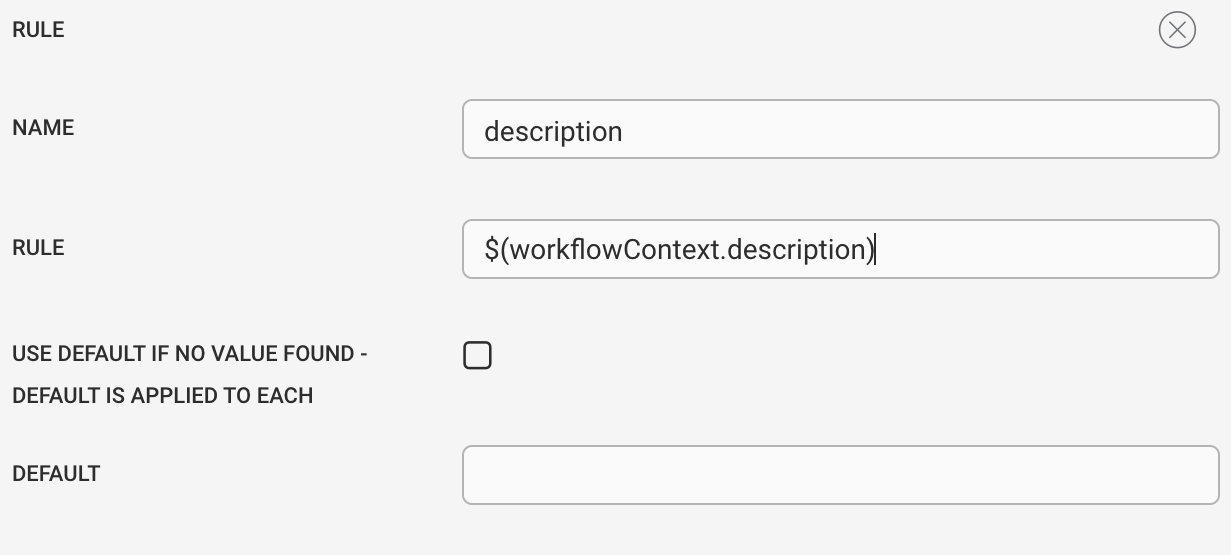getPayloadFromInform
A Workflow Engine function that has the same functionality as the getPayload function, but instead of creating a payload from an in-scope CEvent object (event, alert or situation), the payload is created from the workflowContext object.
This function is available as a feature of the Add-ons v2.3.5 download and later.
This function is available for event, alert, and Situation workflows.
Back to Workflow Engine Functions Reference.
Arguments
Workflow Engine function getPayloadFromInform takes the following arguments:
Name | Required | Type | Description |
|---|---|---|---|
| yes | string | Name of the map from the Payloads integration |
Example
The following example demonstrates typical use of Workflow Engine function getPayloadFromInform.
To create a payload for a map called "AlertExport", set the following:
mapName: AlertExport
The UI translates your settings to the following JSON:
{ “mapName”:”AlertExport”}The function returns true when it finds a map and creates the payload. It stores the payload in the workflowContext.payloads key. The function also assigns the payload an identifier for the in-scope object.
Substitution
The standard payload substitution works for this function. Rules should reference the full path to the object including the workflowContext prefix.
For example, given a workflowContext of:
{
payloads : {
inform: { ...
}
}
}The payload map substitution is:

The completed payload is copied to the workflowContext as workflowContext.payloads.inform. Functions that use this payload (eventless exporters) look for a payload in this location.
{
payloads : {
inform: { ...
}
}
}Macro support
Some macros used in the Payloads integration are associated with CEvent objects (events, alerts and Situations) and so are not relevant to a payload substitution from the workflowContext. As a result, only the following macros are supported. These have the same functionality as the standard payload macros (see Macros Reference).
$TO_INT()
$TO_JSON()
$TO_DATE()
$TO_STRING()
$TO_BOOLEAN()
$TO_LIST()
$SEVERITY()
$FLATTEN()
$FIRST()
Important
$EXPAND() is not supported—if used, the resulting substitution is the original string (example: $EXPAND(severity).
A new macro $SEVERITY has been added to support conversion of an integer severity so it's human readable (example: 5 → Critical).